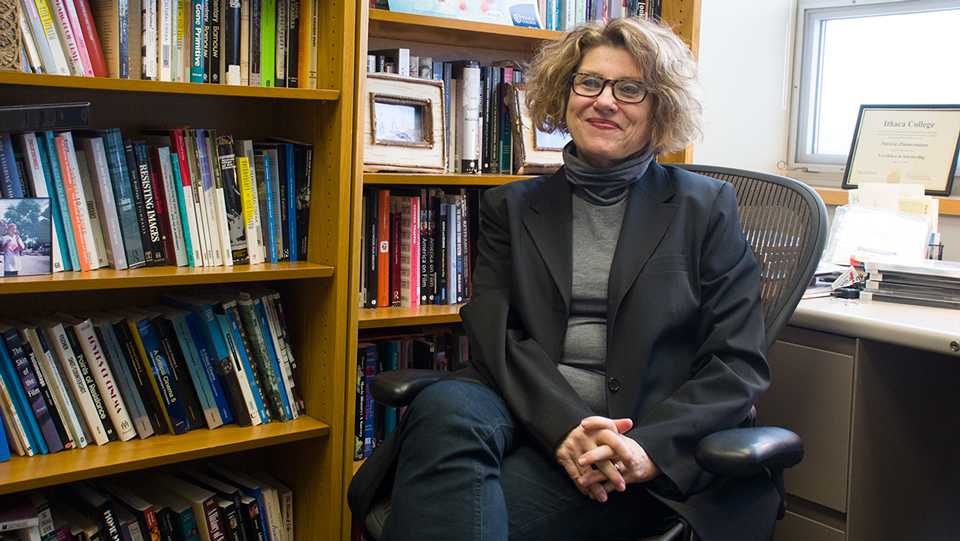During her sabbatical, Patricia Zimmermann, professor in the Department of Media Arts, Sciences and Studies, worked on two projects revolving around independent media. Zimmermann published her book through the Indiana University Press, “The Flaherty: Decades in the Cause of Independent Media,” a historical overview of the Flaherty Film Seminar, one of the longest-running nonprofit independent media organizations.
She also finished writing a book on new media published by Routledge, titled “Open Space New Media Documentary: A Toolkit for Theory and Practice,” which she then discussed while working on a panel in Buenos Aires.
Opinion Editor Meaghan McElroy spoke with Zimmermann to discuss her work in Buenos Aires, her book on the Flaherty seminars and her views on independent media as a whole.
This interview has been edited for length and clarity.
Meaghan McElroy: Your presentation in Argentina this summer was titled “Crooked Stories and Polyphonies: Open Space Documentary Theory in New Media Cartographies.” Can you tell me a little bit about what you delved into with this presentation?
Patricia Zimmermann: What I did in Buenos Aires was that there’s an international organization called Visible Evidence, and it’s an organization for people interested in the study and practice of documentary across all forms, formats and interfaces. I worked with a team of people to create a different kind of model for a conference that’s more interactive and discussion-based, and less giving a lecture. We asked everybody to contribute a topic, and mine was crooked histories and polyphonies because I just finished a book looking at collaborative media. My contribution was, as a historian and as a theorist, drawing on poststructural and postcolonial models that challenge and rewire these other documentary models. You often hear about documentaries in the United States that it’s about giving a voice to the voiceless. This turns that on its head. This kind of work is looking at a multiplicity of voices, and it is rerouting from the authority of the director or the producer to more horizontal or collaborative models.
MM: You said that [people] typically think of documentaries as top-down instead of circular. What does that look like when applied to American documentaries?
PZ: There are many different models of documentary, and they depend on infrastructure, technology and money. I think when a lot of people think of documentary there’s a director and a producer, and they find a topic and then they people it. This is completely different. This doesn’t look that way. Instead of giving people an argument on what you think about X, Y and Z, it says, “This thing is complicated. Let’s get as many voices in the room as possible.” These kinds of projects are not based in one kind of technology. These are projects that migrate across the digital, the analog and the embodied. Many of these projects will have smaller videos or become a larger film.
MM: You’ve also recently completed work on a book about the Flaherty Film Seminar, an independent media nonprofit. What was the importance of writing a book about this?
PZ: I coauthored a book called “The Flaherty: Decades in the Cause of Independent Media” with Scott MacDonald from Hamilton College. It was extremely challenging to do because it’s a 60-plus year history of an organization that is the longest continuously running nonprofit for independent media in the world, and it’s one of the only ones that focuses on both American and international work, and it is an organization that has had an enormous impact on documentary and experimental film internationally. Robert Flaherty is considered to be one of the first independent filmmakers in America because he didn’t work for a TV studio. He also mentored lots and lots of people. When he died, his spouse, Frances Flaherty, wanted to continue this idea of independence. The idea was that you get people together, you show people work they can’t see anywhere else and you let people debate and argue and discuss it. We felt that this history needed to be told because it’s the history of American independent cinema and it’s the history of international independent cinema.
MM: I know that you do a lot of work with independent media and documentary, so what is your operating definition when you do research?
PZ: It changes. All my books are on different topics because it’s never about a big definition. What I’m interested in is not the working definition, but looking at emergent forms of media that represent some kind of shift or change from what preceded it. I’m always careful about that. I consider amateurism a form of independent media. I think amateur film and amateur media are a very important way to document American life, and archives all around the world have broadened their definitions to include amateur media. It’s all very different. It’s very multiple.














